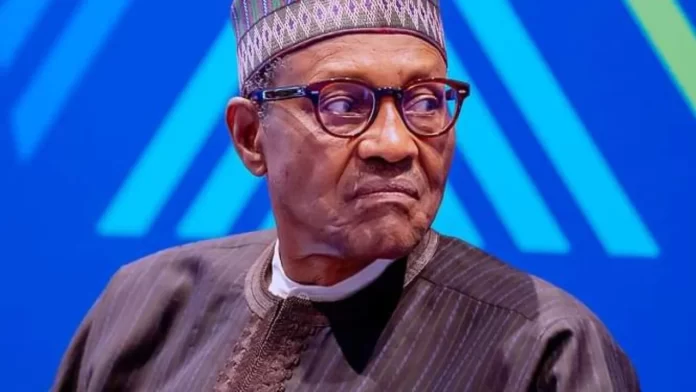From Joshua Chibuzo Andrew
Ex Nigeria President, Goodluck Jonathan has revealed how Boko Haram were willing to negotiate with the Nigerian government during his administration.
Jonathan who spoke at the public presentation of a book authored by former Chief of Defence Staff, Gen. Lucky Irabor (retd.), Jonathan disclosed that the insurgent group had once nominated former President Muhammadu Buhari to represent them in peace talks with the government during his administration.
“I felt that Muhammadu Buhari would have negotiated with Boko Haram to stop the killings since the sect once nominated him to represent them during a peace talk with the Federal Government,” Jonathan said.
He expressed his surprise that despite this nomination, the insurgency persisted during Buhari’s presidency.
According to Jonathan, his administration had set up several committees to explore dialogue with Boko Haram.
“One of the committees we set up then, the Boko Haram nominated Buhari to lead their team to negotiate with the government committee,” he revealed.
Jonathan believed that this nomination could have been an opportunity for Buhari to negotiate with the terrorists when he took over as president.
However, Jonathan noted that the issue of Boko Haram is more complex than often portrayed.
“I thought that after I left, within a reasonable time, General Buhari would wipe them out. But even today, Boko Haram is still there. The issue of Boko Haram is far more complex than it is often presented.
“So, it’s a bit complex, and not a matter of a single story. But I believe, as a nation, we have to look at the Boko Haram issue differently from the conventional approach. I believe one day we’ll overcome it. Once again, let me thank General Irabor for this, because I always appreciate people who document events clearly. That way, when we write our own accounts, we can borrow from such documentation.
“I also believe that all the military officers involved in the Boko Haram saga should provide information about what the group truly stood for,” he added.
“If you conduct research and interview many people, you will only get part of the story, but never the full story of Boko Haram,” he said.
Jonathan also described the abduction of the Chibok schoolgirls in 2014 as a permanent scar on his administration.
He hoped that some leaders of the insurgent group would eventually document their actions to provide clarity on the insurgency’s motives.
Jonathan emphasised that his administration employed various strategies to tackle Boko Haram, but they were not entirely successful.
“If it was only about hunger —.because we tried different options —.I don’t want to sound like I’m defending my government,” he said. “That will be left for history when we document our books.”
He added that the issue of Boko Haram is beyond hunger and poverty, pointing to the sophisticated weapons used by the group. “Where are these guns, sophisticated weapons coming from?” he asked.
“And you begin to see that the external hands are also involved, especially when I was president.”
In his remarks, Jonathan also urged the current administration to consider a different approach to tackling the insurgency.
“Issue of carrots and the stick may be adopted, and yes, probably the needs are there, but if you look at the weapons they use, and you value the weapons, then you know that these are not hungry people,” he said.
Boko Haram emerged in the early 2000s in Borno State, but became a major security threat after its leader, Mohammed Yusuf, was killed in police custody in 2009.
The group escalated its violent campaign against the Nigerian state, including bombings, mass abductions and attacks on military and civilian targets.
In 2012, at the height of Boko Haram’s violence, reports surfaced that the sect named Buhari among respected northern leaders they trusted to mediate between them and the government.
Buhari, however, publicly rejected the offer at the time, accusing the Jonathan administration of trying to drag his name into the crisis for political reasons.
The book presentation, which was attended by several high-profile government officials, provided a platform for Jonathan to share his insights on the Boko Haram insurgency. His comments are likely to spark further debate and discussion on the best way to address the crisis.
As the nation continues to grapple with the challenges posed by Boko Haram, Jonathan’s revelation highlights the need for a comprehensive and nuanced approach to tackling the insurgency.
The government must consider various strategies, including dialogue and negotiation, to bring an end to the crisis.







